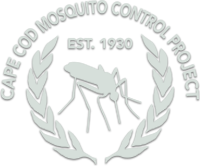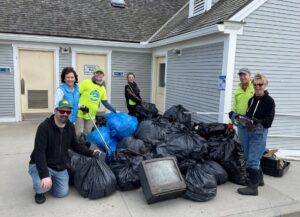
HYANNIS – As the region looks forward to warmer weather in the coming months, Cape Cod Mosquito Control Project Superintendent Gabrielle Sakolsky offered a mosquito update for the region.
Sakolsky said there has been in progress after the situation near Duck Harbor in Wellfleet last year when salt water over-washed a dune which led to a body of standing water and then a significant increase of mosquitoes.
Sakolsky reported water is moving more quickly in the area and fish also have access to the water, which helps reduce the number of mosquito larvae.
When asked about highlighting the role fish play in managing mosquito populations, the insect expert said that fish are hugely important.
“About half of our year is working on water management, making sure that the water continues to flow in areas and making sure that the predators have access into those standing pools to eat the mosquito larvae. Fish are our friends,” Sakolsky said.
For next steps around Duck Harbor, Sakolsky said larvicide treatment is a possibility but would need to be approved by the National Seashore.
In terms of climate change being a factor for insect activity in the region, Sakolsky said more precipitation has meant more habitats for mosquitoes to develop in.
The entomologist reported an increase in salt marsh mosquito populations appearing across the Cape over the years.
According to Sakolsky, salt marsh mosquitoes are more aggressive and are willing to fly for miles to find a blood source. Unlike freshwater mosquitoes, they do not mind the sun which leads to daytime bites.
To avoid bug bites, Sakolsky advised to check labels before buying repellants and make sure that the product has EPA registration.
“That means it has been tested for efficacy. It also means it’s been tested for safety if you follow the directions on the label, which is something that’s missing from the natural products that are out there that are not registered by the EPA,” she said.
Sakolsky also advised people to make sure they’re not leaving standing water in their own yards in things like tarps because it can easily lead to raising mosquito populations on their properties in the summer.
By Brian Engles, CapeCod.com NewsCenter























